Deadly skies: Why Nepal is one of the most dangerous places to fly
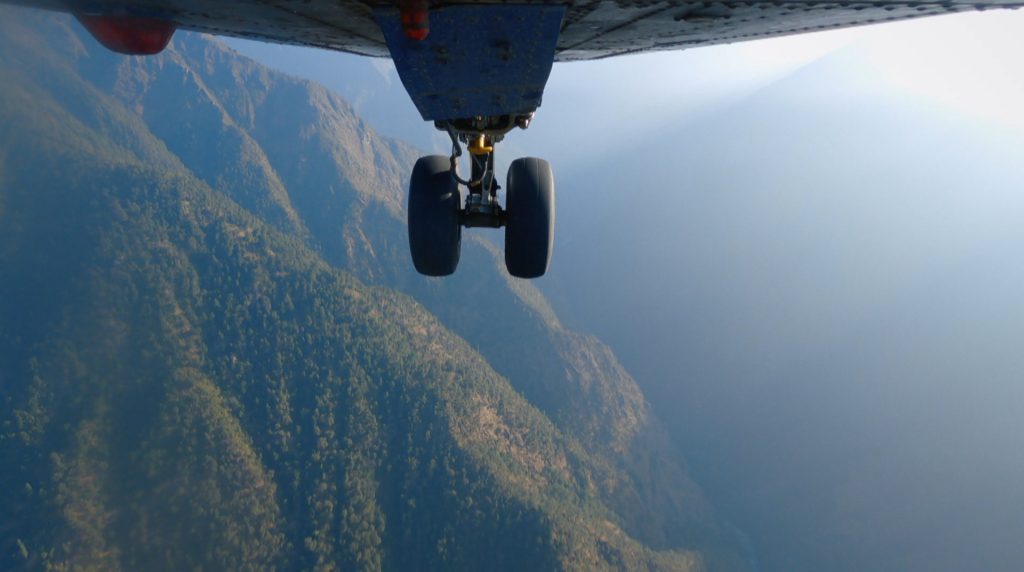
101 East takes to the skies in Nepal and investigates the Himalayan nation’s aviation crisis. Nepal is experiencing an aviation emergency. Nestled in the Himalayas, the South Asian nation is one of the most dangerous places in the world to fly. Since 2010, there have been nearly 40 crashes involving aircraft of all sizes, from helicopters to double-engine planes, resulting in hundreds of deaths. Aviation is critical to Nepal’s tourism industry, one of the country’s main economic drivers, but critics say urgent action is needed before more people are killed. 101 East takes to the skies in Nepal and meets those affected by aviation tragedies to examine an industry in crisis. Published On 22 Nov 202522 Nov 2025 Click here to share on social media share2 Share Adblock test (Why?)
More details of US plan for Ukraine emerge, sees territory ceded to Russia
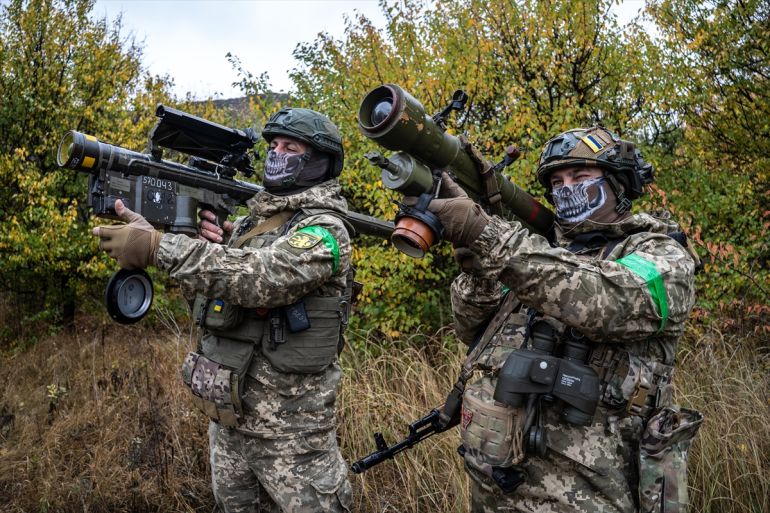
More details are emerging from a 28-point peace plan backed by United States President Donald Trump aimed at ending Russia’s four-year war on Ukraine, with several media outlets and officials confirming that the plan, which has yet to be officially published, appears to favour Russia. Details of the plan also come after US ambassador to the United Nations, Mike Waltz, told the UN Security Council on Thursday afternoon that the US had offered “generous terms for Russia, including sanctions relief”. Recommended Stories list of 4 itemsend of list “The United States has invested at the highest levels, the president of the United States personally, to end this war,” Waltz told the council. The AFP news agency reported on Friday that the plan, which the US views as a “working document”, says that “Crimea, Lugansk [Luhansk] and Donetsk will be recognised as de facto Russian, including by the United States”. This corresponds with an earlier report from US media outlet Axios. The Associated Press (AP) news agency also reported on Friday that the plan would require Ukraine to surrender the Donbas, which includes the Luhansk and Donetsk regions that Ukraine currently partly holds. Under the draft, Moscow would hold all the eastern Donbas region, even though approximately 14 percent still remains in Ukrainian hands, AP reported. AFP and AP also confirmed Axios’s earlier report that the plan would require Ukraine to limit the size of its military. According to AFP, the plan specifically says that the army would be limited to 600,000 personnel. Ukraine is estimated to currently have just under 900,000 active duty military staff. Two Ukrainian soldiers check the scopes of their anti-aircraft systems to ensure they are working properly before heading out on a mission in the Donetsk region of Ukraine in October 2024 [File: Fermin Torrano/Anadolu] ‘A neutral demilitarised buffer zone’ Ukrainian member of parliament Oleksiy Goncharenko shared a document showing what appeared to be the full 28-point peace plan with his 223,000 followers on the Telegram messaging app, late on Thursday, Ukraine time. Advertisement Russia’s state TASS news agency also reported on details included in the document shared by Goncharenko, saying it “purportedly represents a Ukrainian translation of 28 points of the new American plan for a peace settlement in Ukraine”. New details included in the document shared by Goncharenko include that “Ukraine has the right to EU [European Union] membership” and that the “United States will work with Ukraine to jointly restore, develop, modernise, and operate Ukraine’s gas infrastructure, including pipelines and storage facilities”. The document also states that Ukraine’s “Zaporizhzhia Nuclear Power Plant will be commissioned under [UN nuclear agency] IAEA supervision, and the electricity generated will be shared equally between Russia and Ukraine in a 50:50 ratio”. The text of the document shared by Goncharenko also states that “Ukrainian forces withdraw from the part of the Donetsk region that they currently control, and this withdrawal zone will be considered a neutral demilitarised buffer zone”. Handing over territory to Russia would be deeply unpopular in Ukraine and would also be illegal under Ukraine’s constitution. Ukraine’s President Volodymyr Zelenskyy has repeatedly ruled out such a possibility. No NATO membership for Ukraine The AFP news agency also reported that, according to the plan, European fighter jets would be based in Poland specifically to protect Ukraine. However, Kyiv would have to concede that no NATO troops would be stationed in Ukraine and that it would agree never to join the military alliance. Additional details reported by AP include that Russia would commit to making no future attacks on Ukraine, something the White House views as a concession by Moscow. In addition, $100bn in frozen Russian assets would be dedicated to rebuilding Ukraine, AP reported. Russia would also be re-admitted to the G8 group of nations and be integrated back into the global economy under the plan, according to AFP. White House Press Secretary Karoline Leavitt said on Thursday that both Ukrainians and Russians have had input into the plan, which she said US Secretary of State Marco Rubio and US special envoy Steve Witkoff have been quietly working on for a month. Russian President Vladimir Putin, right, welcomes US special envoy Steve Witkoff to their talks at the Kremlin in Moscow, Russia, on April 25, 2025 [Kristina Kormilitsyna/Sputnik/Pool via AP Photo] Adblock test (Why?)
Frida Kahlo painting sells for $54.7m, breaking record for female artists

A 1940 self-portrait by Frida Kahlo has sold for $54.7m and made auction history at Sotheby’s in New York. A haunting 1940 self-portrait by famed Mexican artist Frida Kahlo has sold for $54.7m, making it the most expensive work by a female artist to sell at auction. The painting of Kahlo asleep in a bed, titled El sueno (La cama) – or in English, The Dream (The Bed) – surpassed the record held by Georgia O’Keeffe’s Jimson Weed/White Flower No 1, which sold for $44.4m in 2014. Recommended Stories list of 4 itemsend of list The sale at Sotheby’s in New York on Thursday evening also topped Kahlo’s own auction record for a work by a Latin American artist. The 1949 painting, Diego and I, depicting the artist and her husband, muralist Diego Rivera, went for $34.9m in 2021. Her paintings are reported to have sold privately for even more. The self-portrait that broke records on Thursday is among the few Kahlo pieces that have remained in private hands outside Mexico, where her body of work has been declared an artistic monument. Kahlo’s works in both public and private collections within Mexico cannot be sold abroad or destroyed. Because the painting sold on Thursday comes from a private collection, it is legally eligible for international sale. Sotheby’s said the owner who put the painting up for auction – and whose identity has not been disclosed – “astutely” purchased the piece also at auction in New York in 1980. The buyer’s identity was also not disclosed. ‘El sueño (La cama)’ by Frida Kahlo soars to $54.7 million, becoming the most valuable work by a woman artist ever sold at auction. Painted in 1940 during a pivotal decade in her career, marked by her turbulent relationship with Diego Rivera. pic.twitter.com/t6Sni7fIKT — Sotheby’s (@Sothebys) November 21, 2025 Some art historians had scrutinised the sale for cultural reasons, while others had raised concerns that the painting, which was last exhibited publicly in the late 1990s, could again disappear from public view after the auction. Advertisement It has already been requested for upcoming exhibitions in cities including New York, London and Brussels. The piece depicts Kahlo asleep in a wooden, colonial-style bed that floats in the clouds. She is draped in a golden blanket and entangled in crawling vines and leaves. Above the bed lies a skeleton figure wrapped in dynamite. Kahlo vibrantly and unsparingly depicted herself and events from her life, which was altered by a bus accident at 18. She started to paint while bedridden, underwent a series of painful surgeries on her damaged spine and pelvis, and then wore casts until her death in 1954 at age 47. During the years Kahlo was confined to her bed, she came to view painting as a bridge between worlds as she explored her mortality. “I’m very proud that she’s one of the most valued women, because really, what woman doesn’t identify with Frida, or what person doesn’t?” her great-niece, Mara Romeo Kahlo, told The Associated Press news agency before the auction. “I think everyone carries a little piece of my aunt in their heart.” Kahlo resisted being labelled a surrealist painter, a style of art that is dreamlike and centres on a fascination with the unconscious mind. “I never painted dreams,” she once said. “I painted my own reality.” The new record for Kahlo’s painting came hours after a Gustav Klimt portrait sold for $236.4m, setting a new record for a modern art piece. Klimt’s Portrait of Elisabeth Lederer sold after a 20-minute bidding war, also at Sotheby’s in New York, on Tuesday. Adblock test (Why?)
Fugees rapper sentenced to 14 years in prison over illegal Obama donations
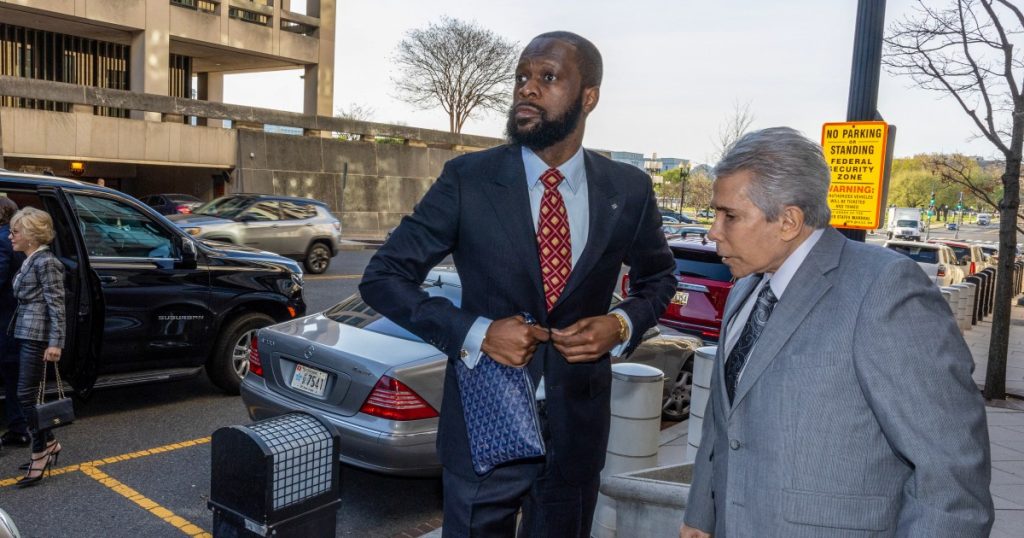
Justice Department prosecutors accused Grammy-winning rapper Pras Michel of betraying his country for money. A United States district judge has sentenced Prakazrel “Pras” Michel, a member of 1990s hip-hop group the Fugees, to 14 years in prison for illegally funnelling millions of dollars in foreign contributions to former US President Barack Obama’s 2012 re-election campaign. Michel declined to address the court before Judge Colleen Kollar-Kotelly sentenced him on Thursday. The trial in Washington, DC, included testimony from former Attorney General Jeff Sessions and Hollywood actor Leonardo DiCaprio. Recommended Stories list of 3 itemsend of list This week’s sentencing came after a federal jury convicted Michel on 10 counts, including conspiracy and acting as an unregistered agent of a foreign government, in April 2023. Michel obtained more than $120m from fugitive Malaysian financier Low Taek Jho – also known as Jho Low – and steered some of that money through straw donors to Obama’s campaign. Low is wanted for his leading role in the 1MDB scandal, in which billions of dollars were pilfered from Malaysia’s state investment fund in one of the largest financial frauds in history. Several senior financial figures and members of Malaysia’s government have been convicted for their role in the scandal, including disgraced former Prime Minister Najib Razak, who was handed a 12-year prison sentence in 2022, which was later halved. Court documents, filed by Justice Department prosecutors on Thursday, said the 52-year-old Grammy-winning rapper “lied unapologetically and unrelentingly to carry out his schemes” as he syphoned illegal payments from Low to the Obama campaign. Advertisement It is illegal in the US for foreigners to donate to election campaigns, as well as to pay someone else to make a campaign contribution. “Prakazrel Michel betrayed his country for money. He funnelled millions of dollars in prohibited foreign contributions into a United States presidential election and attempted to manipulate a sitting president to serve a foreign criminal and a foreign power,” prosecutors said. Prosecutors also said Michel had attempted to end a Justice Department investigation into Low and the 1MDB scandal, as well as “tampered with witnesses and then perjured himself at trial”. Judge Kollar-Kotelly was advised by prosecutors that federal sentencing guidelines recommended a life sentence for such crimes, urging her to take into account the “breadth and depth of his crimes, his indifference to the risks to his country, and the magnitude of his greed”. Michel’s lawyers downplayed the extent of his crimes, saying Low’s motivation for donating money was not to “achieve some policy objective”. “Instead, Low simply wanted to obtain a photograph with himself and then-President Obama,” Michel’s lawyers wrote. Low – who remains in hiding and claims innocence – courted America’s rich and famous during a years-long spending spree allegedly financed by funds stolen from 1MDB. Notably, he was one of the primary financiers of the 2013 film The Wolf of Wall Street, starring DiCaprio. Defence lawyer Peter Zeidenberg said Michel will appeal. He labelled his client’s 14-year sentence “completely disproportionate to the offence” and “absurdly high” given such terms are typically reserved for deadly terrorists and drug cartel leaders. Instead, Zeidenberg recommended a three-year prison sentence for Michel. Michel, a Brooklyn native whose parents immigrated to the US from Haiti, was a founding member of the Fugees along with childhood friends Lauryn Hill and Wyclef Jean. The group won two Grammy Awards during their peak in the 1990s and sold tens of millions of albums. Adblock test (Why?)
Israel “seems to be testing” UN ceasefire resolution
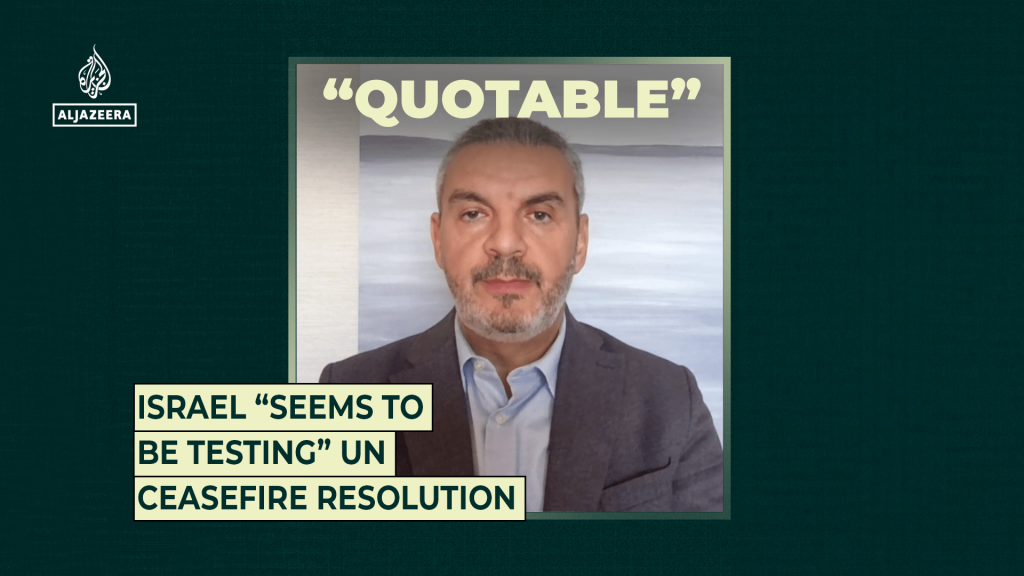
Khaled Elgindy, a senior fellow at the Quincy Institute, says Israel’s strikes on Gaza despite a UN ceasefire resolution raise questions about international will to uphold it. Published On 20 Nov 202520 Nov 2025 Click here to share on social media share2 Share Adblock test (Why?)
Video: Girl in Gaza rebuilds life after Israeli strike kills family
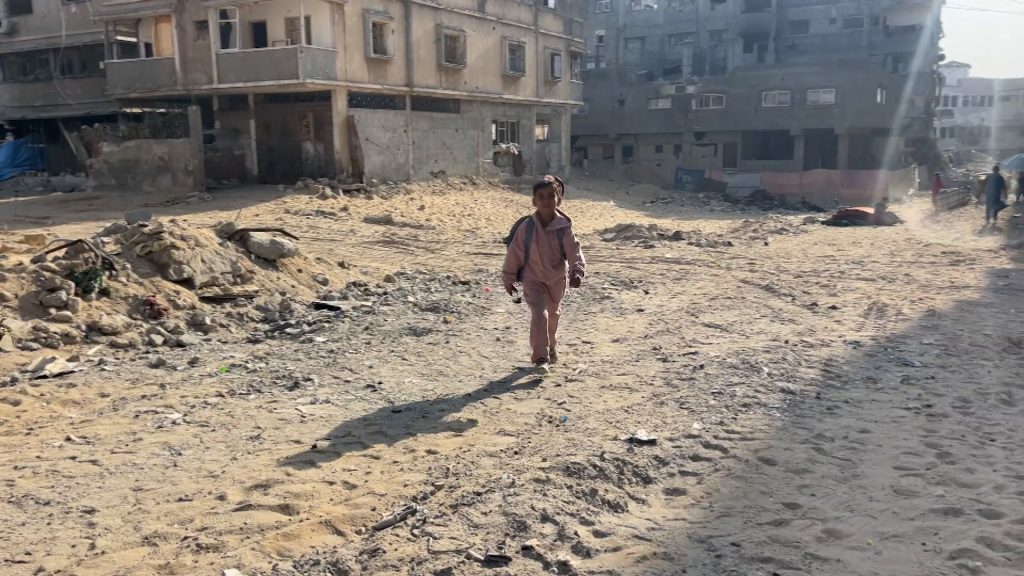
NewsFeed Palestinian orphan Elham Abu Hajjaj is learning to cope with her loss after an Israeli strike killed her parents and left her with severe burns. She’s just one of tens of thousands of children from Gaza who’ve suffered bereavement, serious injury, or both. Click here to share on social media share2 Share Adblock test (Why?)
US Justice Department commits to release Epstein files in 30 days
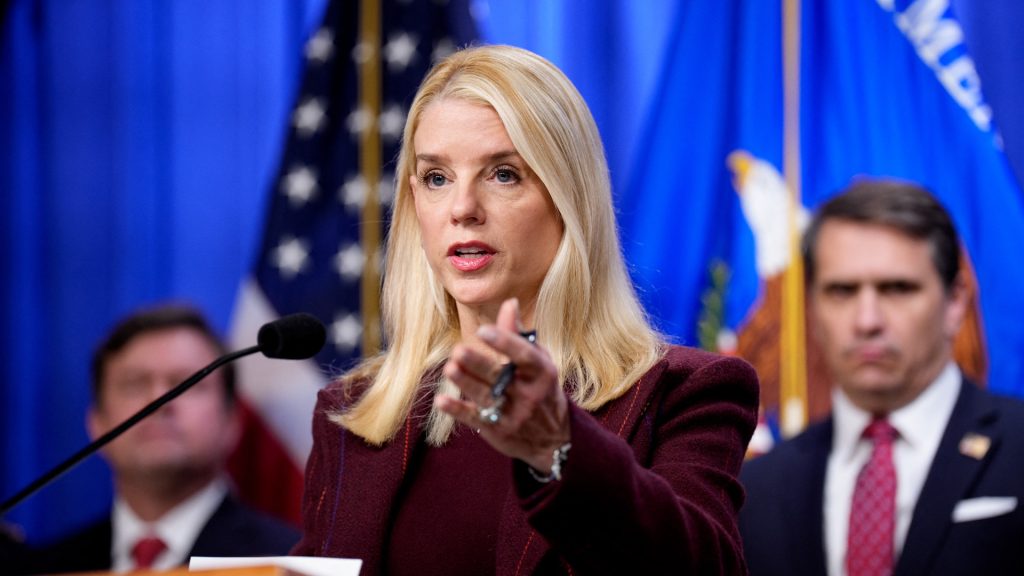
NewsFeed Donald Trump has signed a law requiring the US Justice Department to release the remaining Epstein files within 30 days. The Attorney General said her department would comply – but hinted some documents could be withheld for legal reasons. Published On 20 Nov 202520 Nov 2025 Click here to share on social media share2 Share Adblock test (Why?)
Family demands independent medical care for US teen detained by Israel
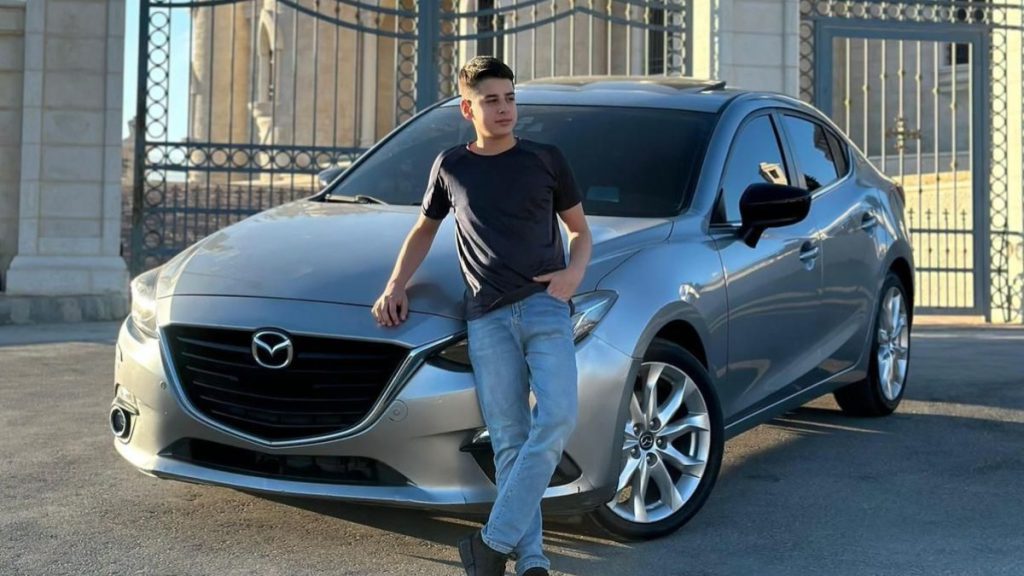
The family of Mohammed Ibrahim, a Palestinian American boy who has been detained by Israel since February, is demanding that an independent doctor assess the teenager’s condition amid alarming reports about his situation in prison. Mohammed’s uncle, Zeyad Kadur, said an official from the United States embassy in Israel visited the 16-year-old last week at Ofer Prison. Recommended Stories list of 3 itemsend of list The official told the family afterwards that Ibrahim had lost weight and dark circles were forming around his eyes, Kadur told Al Jazeera. The consular officer also said he had raised Mohammed’s case with multiple US and Israeli agencies. “This is the first time in nine months that they showed grave concern for his health, so how bad is it?” Kadur asked in an interview on Wednesday. Despite rights groups and US lawmakers pleading for Mohammed’s release, Israel has refused to free him, and his family said the administration of President Donald Trump is not doing enough to bring him home. Israeli authorities have accused Ibrahim of throwing rocks at settlers in the occupied West Bank, an allegation he denies. But the legal proceedings in the case are moving at a snail’s pace in Israel’s military justice system, according to Mohammed’s family. Rights advocates also say that the military court system in the occupied West Bank is part of Israel’s discriminatory apartheid regime, given its conviction rate of nearly 100 percent for Palestinian defendants. Adding to the Ibrahim family’s angst is the lack of access to the teenager while Mohammed is in Israeli prison. Unable to visit him or communicate with him, his relatives are only able to receive updates from the US embassy. Advertisement The teenager has been suffering from severe weight loss while in detention, his father, Zaher Ibrahim, told Al Jazeera earlier this year. He also contracted scabies, a contagious skin infection. The last visit he received from US embassy staff was in September. Israeli authorities have committed well-documented abuses against Palestinian detainees, including torture and sexual violence, especially after the start of Israel’s genocidal war on Gaza in October 2023. “We hear and see people getting out of prison and what they look like, and we know it’s bad,” Kadur said. “Mohammed is an American kid who was taken at 15. He is now 16, and he’s been sitting there for nine months and hasn’t seen his mom, hasn’t seen his dad.” He added that the family is also concerned about Mohammed’s mental health. “We’re requesting that he gets sent to a hospital and evaluated by a third party, not by a prison medic or nurse. He needs some actual attention,” Mohammed’s uncle told Al Jazeera. Mohammed, who is from Florida, was visiting Palestine when in the middle of the night he was arrested, blindfolded and beaten in what Kadur described as a “kidnapping”. The US Department of State did not respond to Al Jazeera’s request for comment on the latest consular visit to Mohammed. When Secretary of State Marco Rubio visited Israel last month, he appeared to have misheard a question about Palestinian prisoner Marwan Barghouti and thought it was about Mohammed’s case. “Are you talking about the one from the US? I don’t have any news for you on that today,” Rubio told reporters. “Obviously, we’ll work that through our embassy here and our diplomatic channels, but we don’t have anything to announce on that.” But for Kadur, Mohammed’s case is not a bureaucratic or legal matter – it is one that requires political will from Washington to secure his freedom. Kadur underscored that the US has negotiated with adversaries, including Venezuela, Russia and North Korea, to free detained Americans, so it can push for the release of Mohammed from its closest ally in the Middle East. The US provided Israel with more than $21bn in military aid over the past two years. Kadur drew a contrast between the lack of US effort to free Mohammed and the push to release Edan Alexander, a US citizen who was volunteering in the Israeli army and was taken prisoner during Hamas’s attacks on southern Israel on October 7, 2023. Alexander was released in May after pressure from the Trump administration on Hamas. “The American government negotiated with what they consider a terrorist organisation, and they secured his release – an adult who put on a uniform, who picked up a gun and did what he signed up for,” Kadur said of Alexander. Advertisement “Why is a 16-year-old still there for nine months, rotting away, deteriorating in a prison? That’s one example to show that Mohammed – and his name and his Palestinian DNA – [are] not considered American enough by the State Department first and by the administration second.” Adblock test (Why?)
Syria condemns Israeli PM Netanyahu’s ‘illegal visit’ to seized territory

Israel has kept troops in a UN-patrolled buffer zone in the Golan Heights since December’s ouster of Bashar al-Assad. Syria has denounced a trip by Israeli Prime Minister Benjamin Netanyahu and other senior officials to the country’s south, where they visited troops deployed to Syrian territory they’ve occupied for months. Israel expanded its occupation of southern Syrian territory as the regime of former President Bashar al-Assad was overrun by rebel forces in December. Recommended Stories list of 4 itemsend of list “My government strongly condemns this provocative tour, which epitomises Israel’s ongoing aggression against Syria and its people,” Ibrahim Olabi, Syria’s ambassador to the United Nations, told the UN Security Council on Wednesday. “We renew our call on the UN and this council to take firm and immediate action to halt these violations, ensure their non-reoccurrence, end the occupation and enforce relevant resolutions, particularly the 1974 disengagement agreement” that followed the 1973 Arab-Israeli War. Since the overthrow of al-Assad, Israel has kept troops in a UN-patrolled buffer zone in the Golan Heights separating Israeli and Syrian forces. UN spokesperson Stephane Dujarric described Netanyahu and other senior Israeli officials’ “very public visit” as “concerning, to say the least”. Dujarric noted that UN Resolution 2799, recently passed by the Security Council, “called for the full sovereignty, unity, independence, and territorial integrity of Syria”. Israel has previously said the 1974 agreement has been void since al-Assad fled, and it has breached Syrian sovereignty with air strikes, ground infiltration operations, reconnaissance overflights, the establishment of checkpoints, and the arrest and disappearance of Syrian citizens. Advertisement Syria has not reciprocated the attacks. ‘Zero signs of aggression’ During the Security Council meeting, Danny Danon, Israel’s ambassador to the UN, did not directly address Netanyahu’s visit but instead lectured Syria’s ambassador. “Show us that Syria is moving away from extremism and radicalism, that the protection of Christians and Jews is not an afterthought but a priority. Show us that the militias are restrained and justice is real and the cycle of indiscriminate killings has ended,” Danon said. Olabi responded: “The proving, Mr Ambassador, tends to be on your shoulders. You have struck Syria more than 1,000 times, and we have responded with requests for diplomacy … and responded with zero signs of aggression towards Israel. … We have engaged constructively. and we still await for you to do the same.” Netanyahu was accompanied to Syrian territory by Foreign Minister Gideon Saar, Defence Minister Israel Katz, army Chief of Staff Eyal Zamir and the head of the Shin Bet security service, David Zini Syria’s Ministry of Foreign Affairs and Expatriates condemned “in the strongest terms the illegal visit, … considering it a serious violation of Syria’s sovereignty and territorial integrity”. This month, Israel’s army renewed its incursions into Syria, setting up a military checkpoint in the southern province of Quneitra. In September, Syrian President Ahmed al-Sharaa said Israel had conducted more than 1,000 air strikes and more than 400 ground incursions in Syria since al-Assad was overthrown, describing the actions as “very dangerous”. Reporting from the UN in New York, Al Jazeera’s Gabriel Elizondo noted Syria and Israel continue to negotiate a security pact that analysts said could be finalised before the end of the year. “The testy exchange between the two ambassadors likely won’t derail that. But it does show how little trust there is between both countries – and how Netanyahu and his government continue to try to provoke Damascus,” Elizondo said. Adblock test (Why?)
Nvidia forecasts Q4 revenue above estimates despite AI bubble concerns
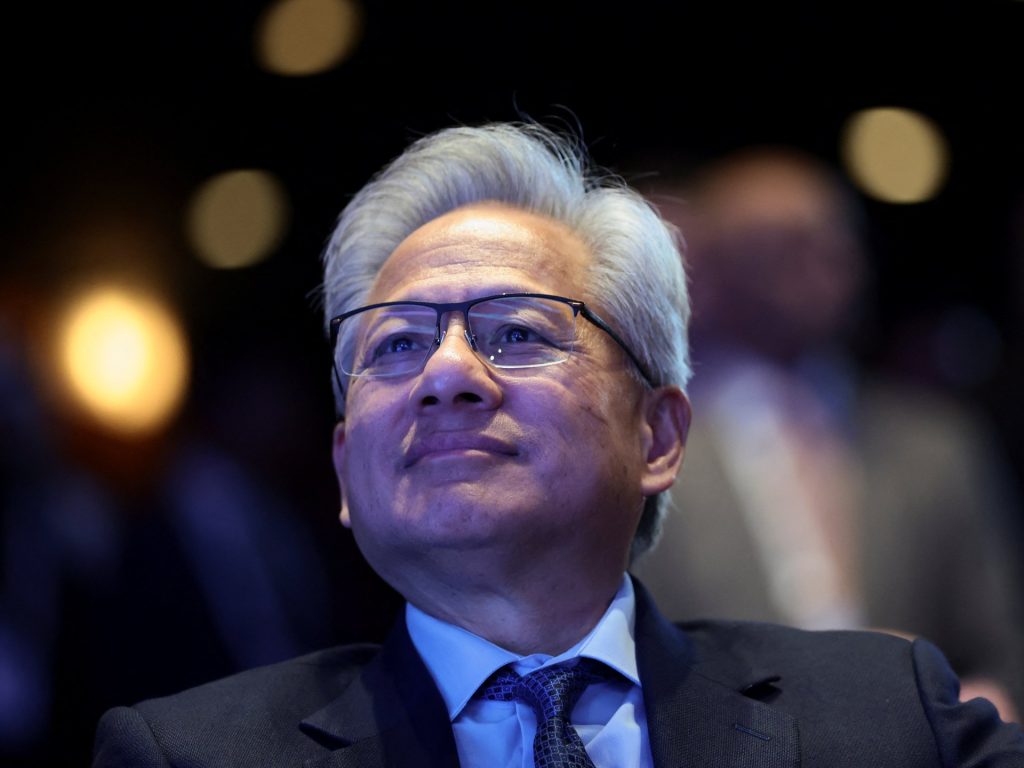
Analysts expect AI chip demand to remain strong. By Reuters Published On 19 Nov 202519 Nov 2025 Click here to share on social media share2 Share Nvidia has forecast fourth-quarter revenue above Wall Street estimates and is betting on booming demand for its AI chips from cloud providers even as widespread concerns of an artificial intelligence bubble grow stronger. The world’s most valuable company expects fourth-quarter sales of $65bn, plus or minus 2 percent, compared with analysts’ average estimate of $61.66bn, according to data compiled by LSEG. Recommended Stories list of 4 itemsend of list The results from the AI chip leader mark a defining moment for Wall Street as global markets look to the chip designer to determine whether investing billions of dollars in AI infrastructure expansion has resulted in towering valuations that potentially outpace fundamentals. “The AI ecosystem is scaling fast with more new foundation model makers, more AI start-ups across more industries and in more countries. AI is going everywhere, doing everything, all at once,” Nvidia CEO Jensen Huang said in a statement. Before the results, doubts had pushed Nvidia shares down nearly 8 percent in November after a 1,200 percent surge in the past three years. Sales in the data-centre segment, which accounts for a majority of Nvidia’s revenue, grew to $51.2bn in the quarter that ended on October 26. Analysts had expected sales of $48.62bn, according to LSEG data. Warning signs But some analysts noted that factors beyond Nvidia’s control could impede its growth. “While GPU [graphics processing unit] demand continues to be massive, investors are increasingly focused on whether hyperscalers can actually put this capacity to use fast enough,” said Jacob Bourne, an analyst with eMarketer. “The question is whether physical bottlenecks in power, land and grid access will cap how quickly this demand translates into revenue growth through 2026 and beyond.” Advertisement Nvidia’s business also became increasingly concentrated in its fiscal third quarter with four customers accounting for 61 percent of sales. At the same time, it sharply ramped up how much money it spends renting back its own chips from its cloud customers, who otherwise cannot rent them out, with those contracts totalling $26bn – more than double their $12.6bn in the previous quarter. Still, analysts and investors widely expected the underlying demand for AI chips, which has powered Nvidia results since ChatGPT’s launch in late 2022, to remain strong. Nvidia CEO Jensen Huang said last month that the company has $500bn in bookings for its advanced chips through 2026. Big Tech, among Nvidia’s largest customers, has doubled down on spending to expand AI data centres and snatch the most advanced, pricey chips as it commits to multibillion-dollar, multigigawatt build-outs. Microsoft last month reported a record capital expenditure of nearly $35bn for its fiscal first quarter with roughly half of it spent primarily on chips. Nvidia expects an adjusted gross margin of 75 percent, plus or minus 50 basis points in the fourth quarter, compared with market expectation of 74.5 percent. Adblock test (Why?)

